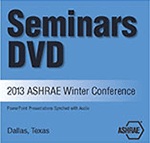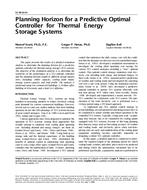Within an International Energy Agency (IEA) project, Annex 27, experts from 8 countries (Canada, France, Italy, Japan, The Netherlands, Sweden, UK, and USA) have developed simplified tools for evaluating domestic ventilation systems during the heating season. Tools for building and user aspects, thermal comfort, noise, energy, life cycle cost, reliability and indoor air quality (IAQ) have been devised. The results can be used both for dwellings at the design stage and after construction. The tools lead to immediate answers and indications about the consequences of different choices that may arise during discussion with clients. This paper presents an introduction to these tools. Examples applications of the indoor air quality and energy simplified tools are also provided.
The IAQ tool accounts for constant emission sources, CO 2 , cooking products, tobacco smoke, condensation risks, humidity levels (i.e., for judging the risk for mould and house dust mites), and pressure difference (for identifying the risk for radon or land fill spillage entering the dwelling or problems with indoor combustion appliances). An elaborated set of design parameters were worked out that resulted in about 17000 combinations. By using multi-variate analysis it was possible to reduce this to 174 combinations for IAQ. In addition, a sensitivity analysis was made using 990 combinations. The results from all the runs were used to develop a simplified tool, as well as quantifying equations relying on the design parameters. A computerized energy tool has also been developed within this project, which takes into account air tightness, climate, window airing pattern, outdoor air flow rate and heat exchange efficiency.
Units: SI
Citation: Symposium, ASHRAE Transactions, vol. 105, pt. 2, Seattle 1999
Product Details
- Published:
- 1999
- Number of Pages:
- 8
- File Size:
- 1 file , 2.6 MB
- Product Code(s):
- D-7449


